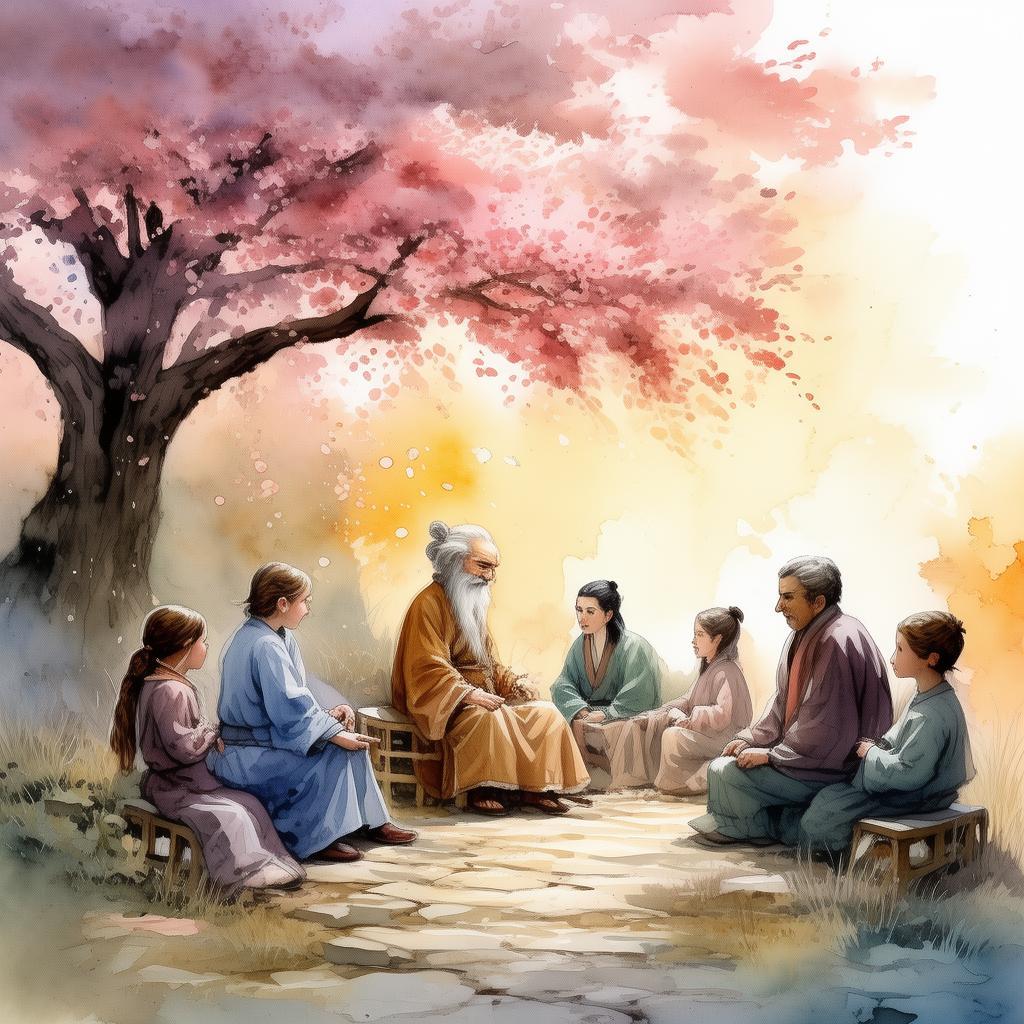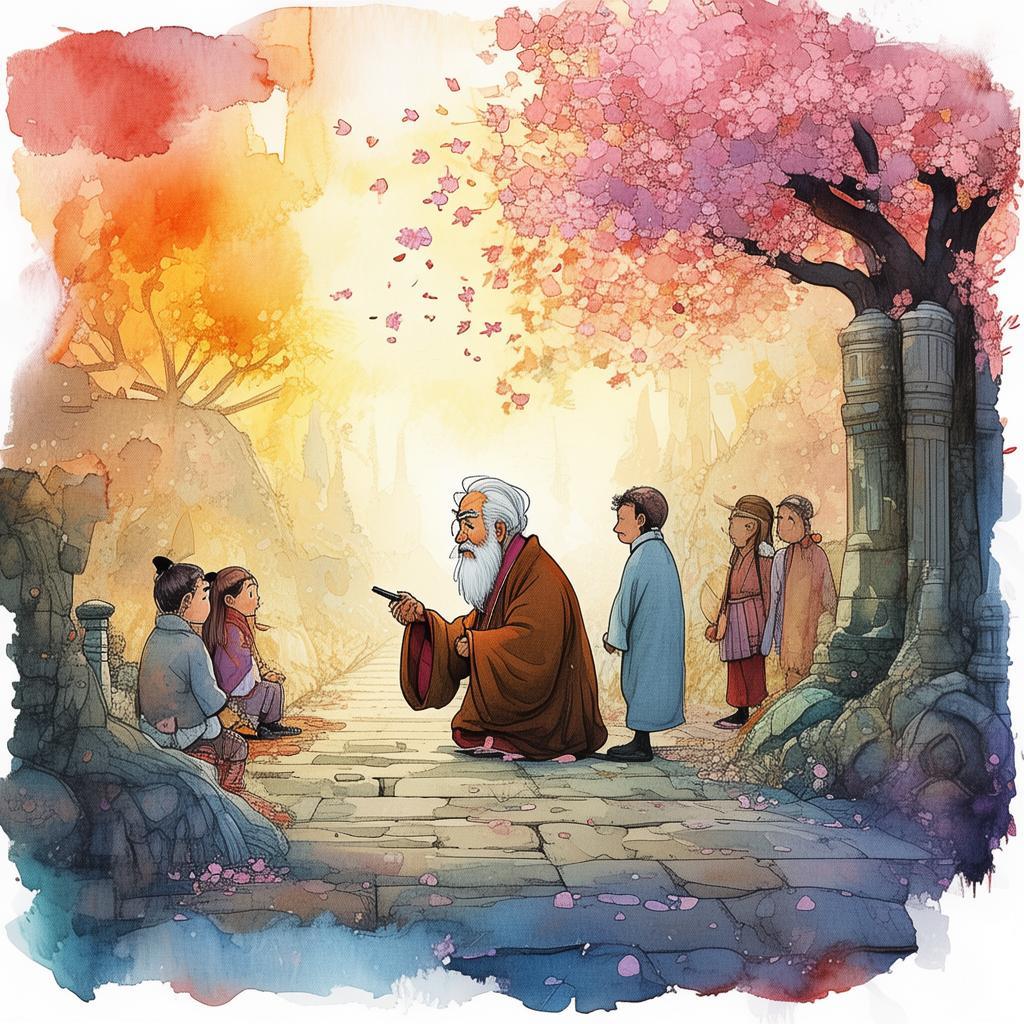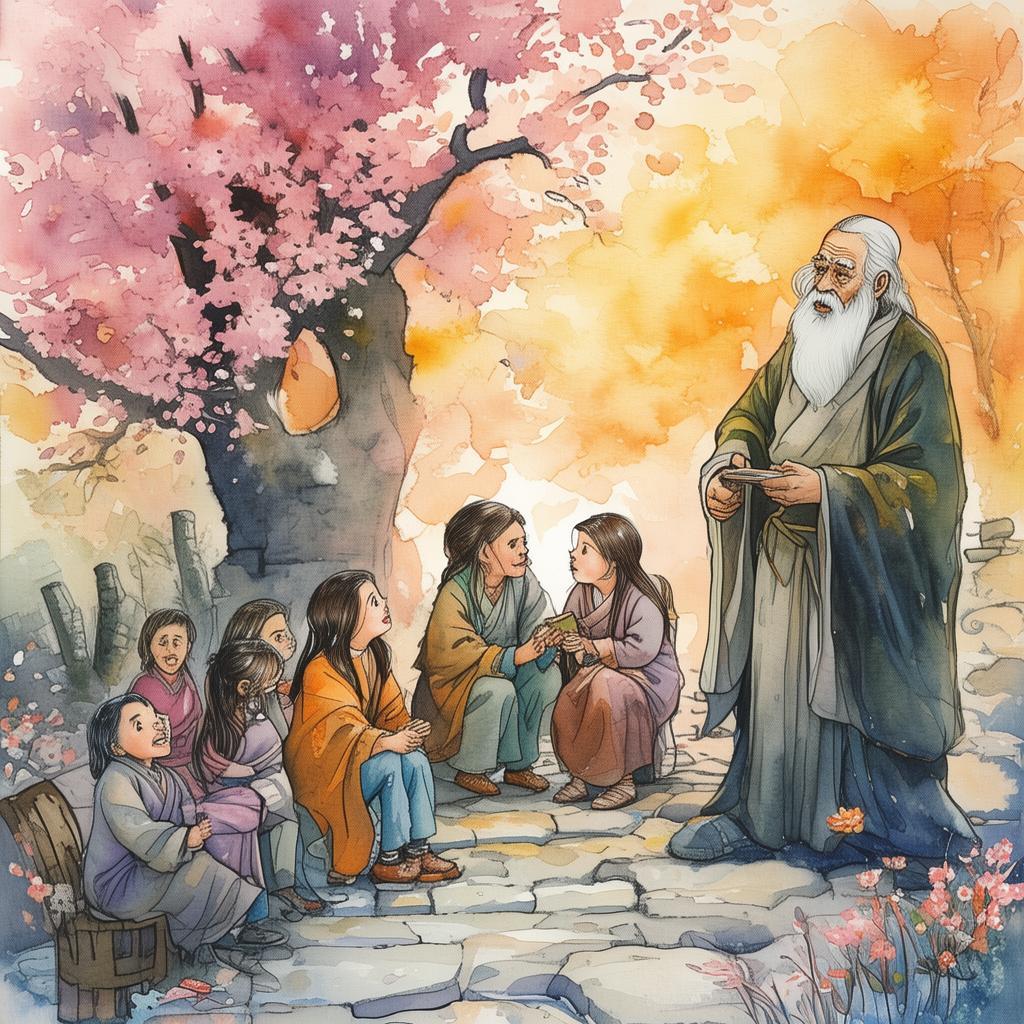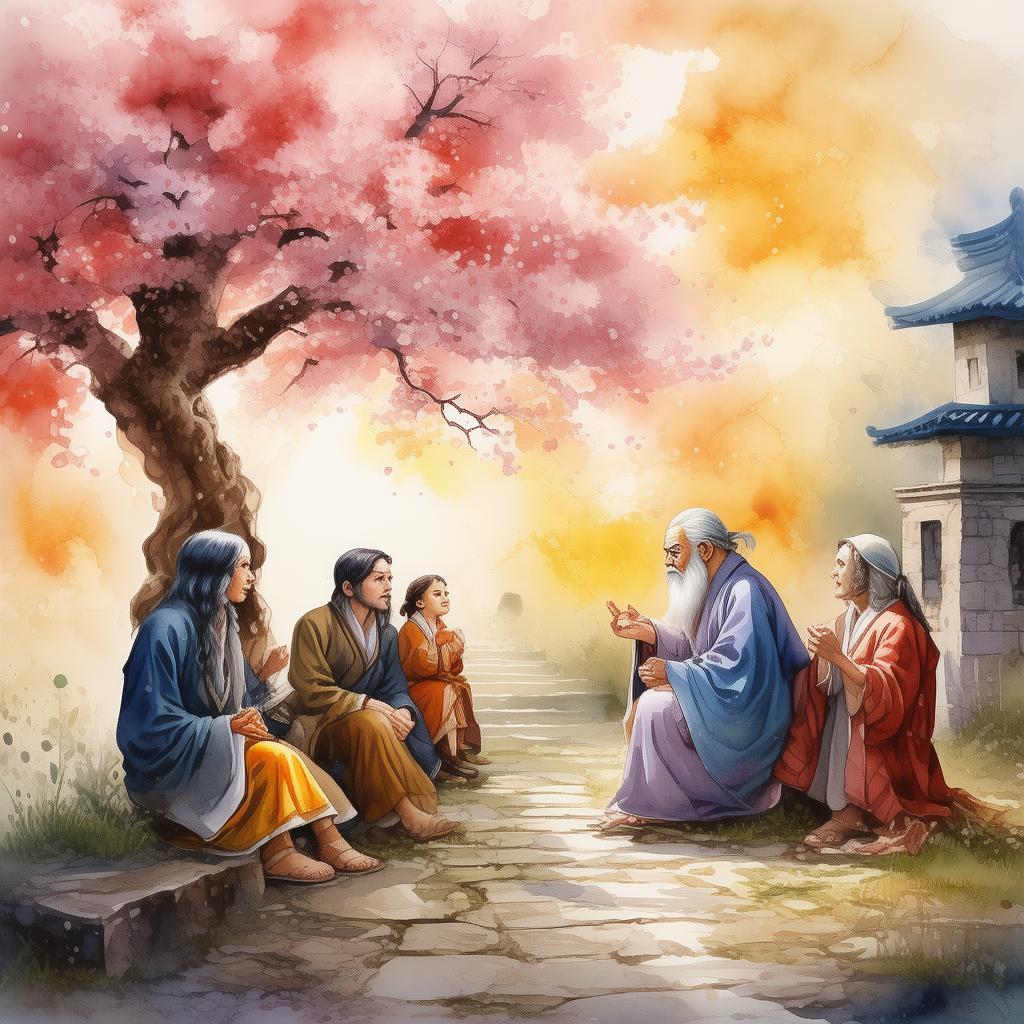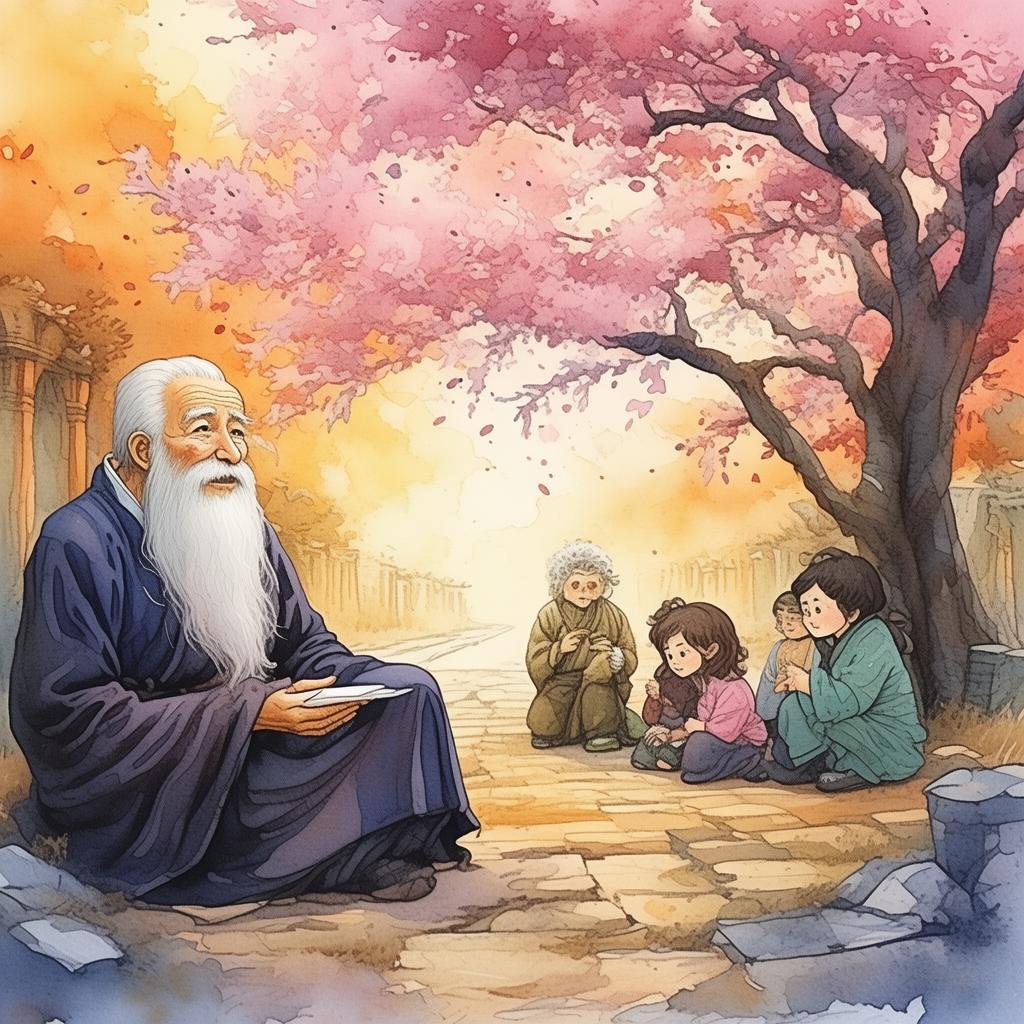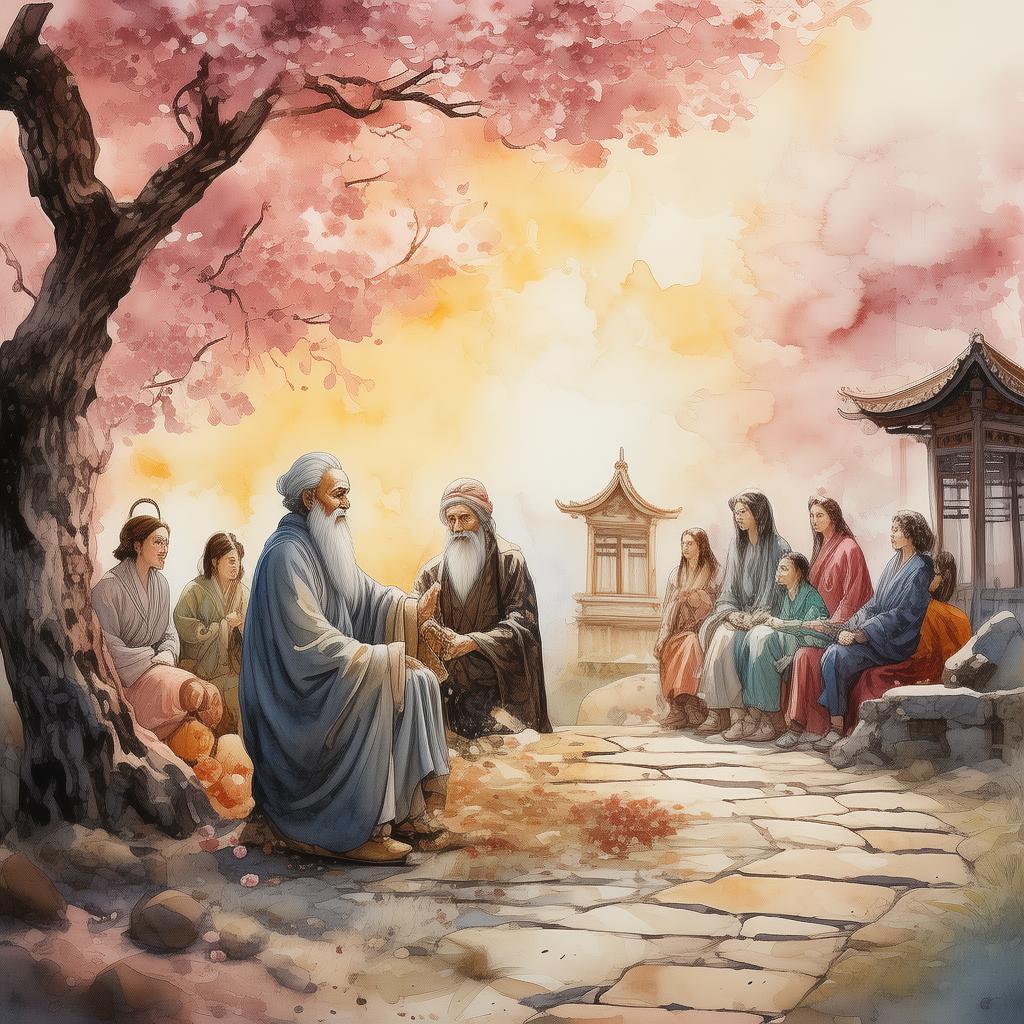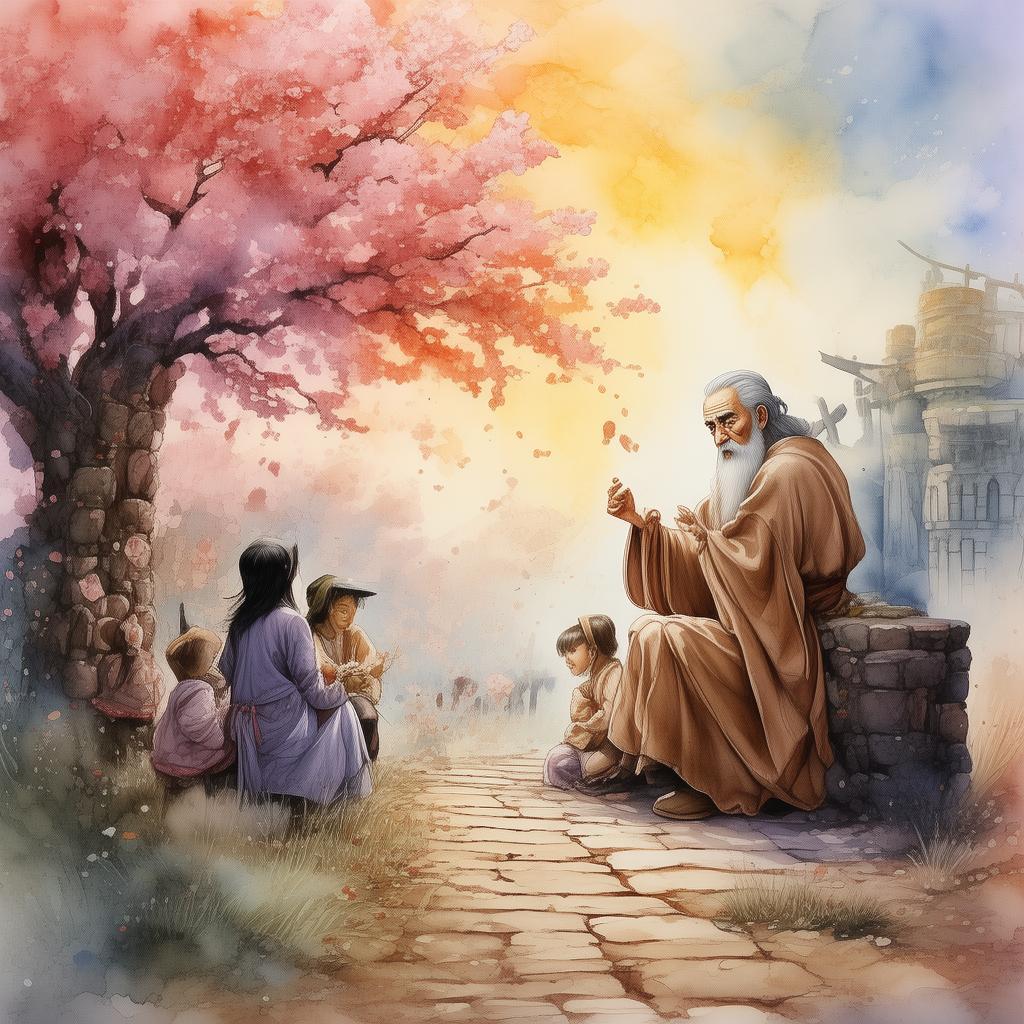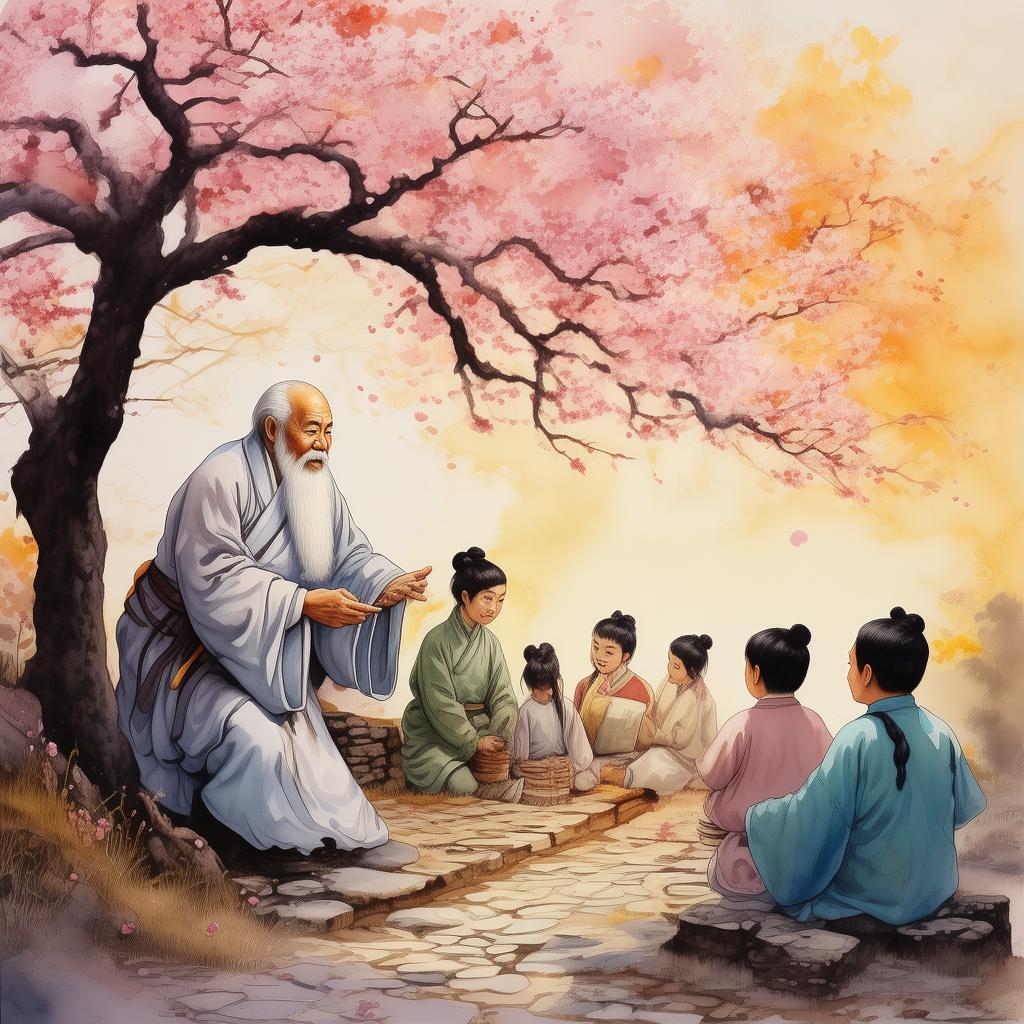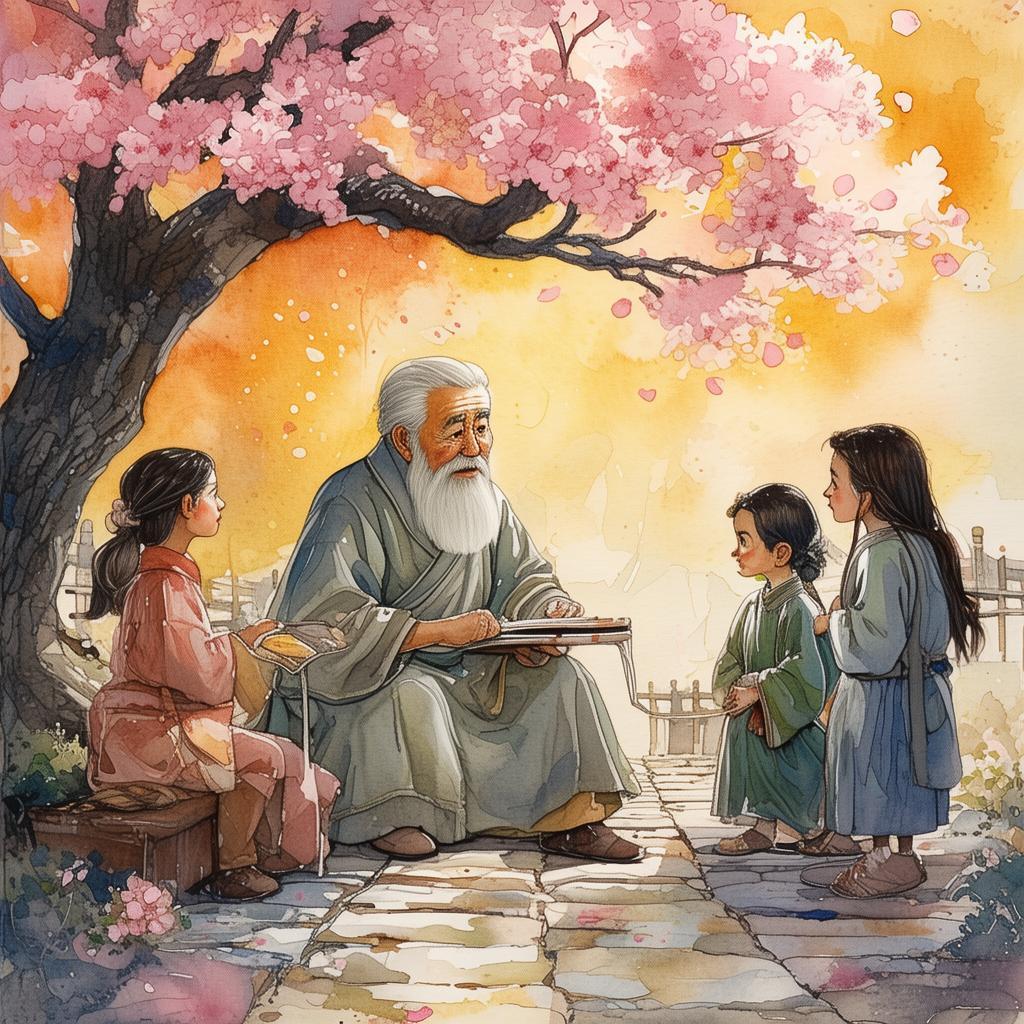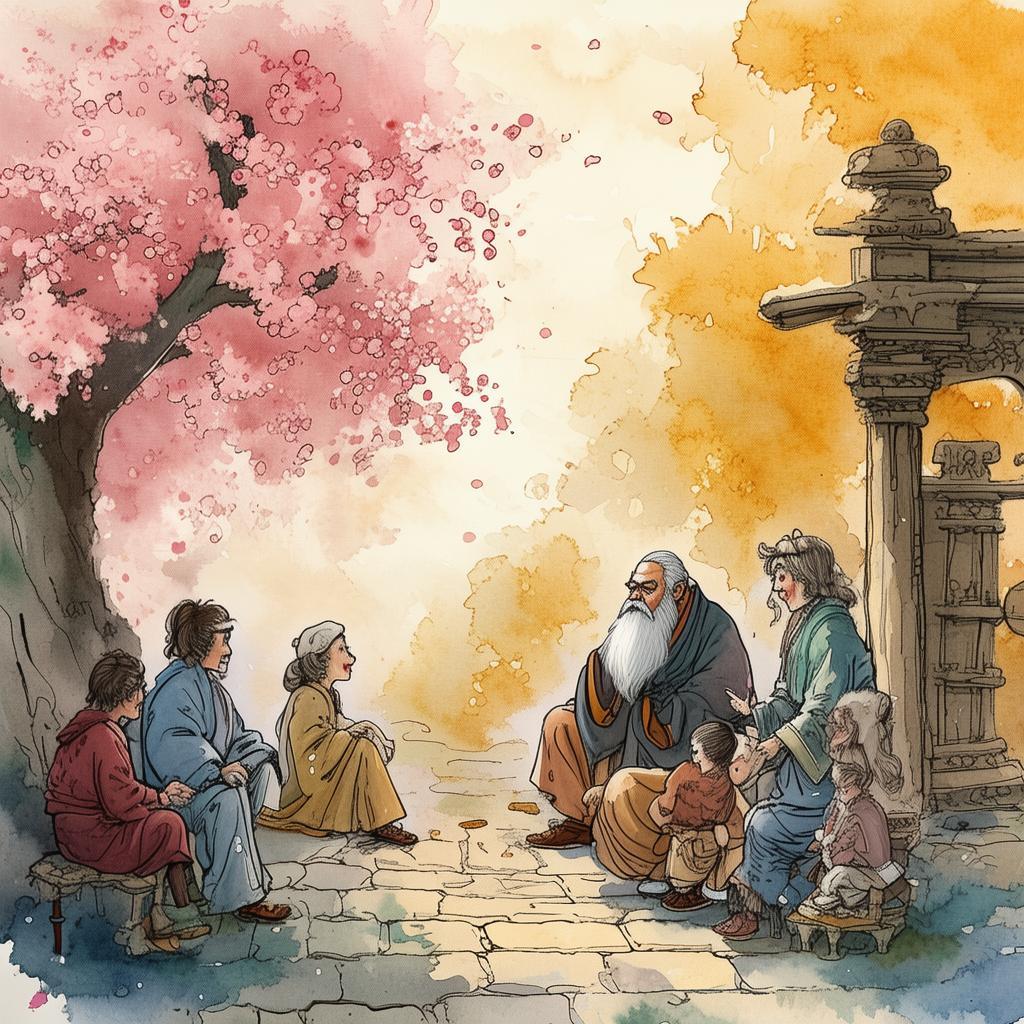The Bread of Dreams: A Tale of Resilience and Aspiration
In the heart of a bustling city, where the air was thick with the scent of exhaust and the sound of honking cars, lived a man known only as the Poor Poet. His name was Li Ming, a man with a gentle soul and a fervent love for the written word. Li Ming spent his days wandering the streets, his head filled with rhymes and his heart heavy with the weight of his poverty.
The Poor Poet's Passion, The Rhyme of Life and Longing for Bread, was the title of his only published work, a collection of poems that captured the essence of his struggle and the dreams that kept him alive. Yet, despite the beauty of his words, Li Ming's life was a stark contrast to the pages he filled with dreams of a life of bread and poetry.
One cold morning, as the sun struggled to pierce through the smog, Li Ming found himself in the shadow of a towering building. His stomach rumbled with hunger, a constant companion that never failed to remind him of his poverty. He looked down at the thin crust of bread he had managed to buy with his last coin, the only sustenance he could afford.
As he took a bite, he felt a pang of sorrow. The bread was hard and tasteless, a stark reminder of the stark reality that surrounded him. Yet, amidst the despair, Li Ming found solace in his poetry. He recited from The Rhyme of Life and Longing for Bread, his voice barely above a whisper:
"In the heart of the city, where dreams are but whispers,
A poet seeks bread, yet his soul yearns for the stars.
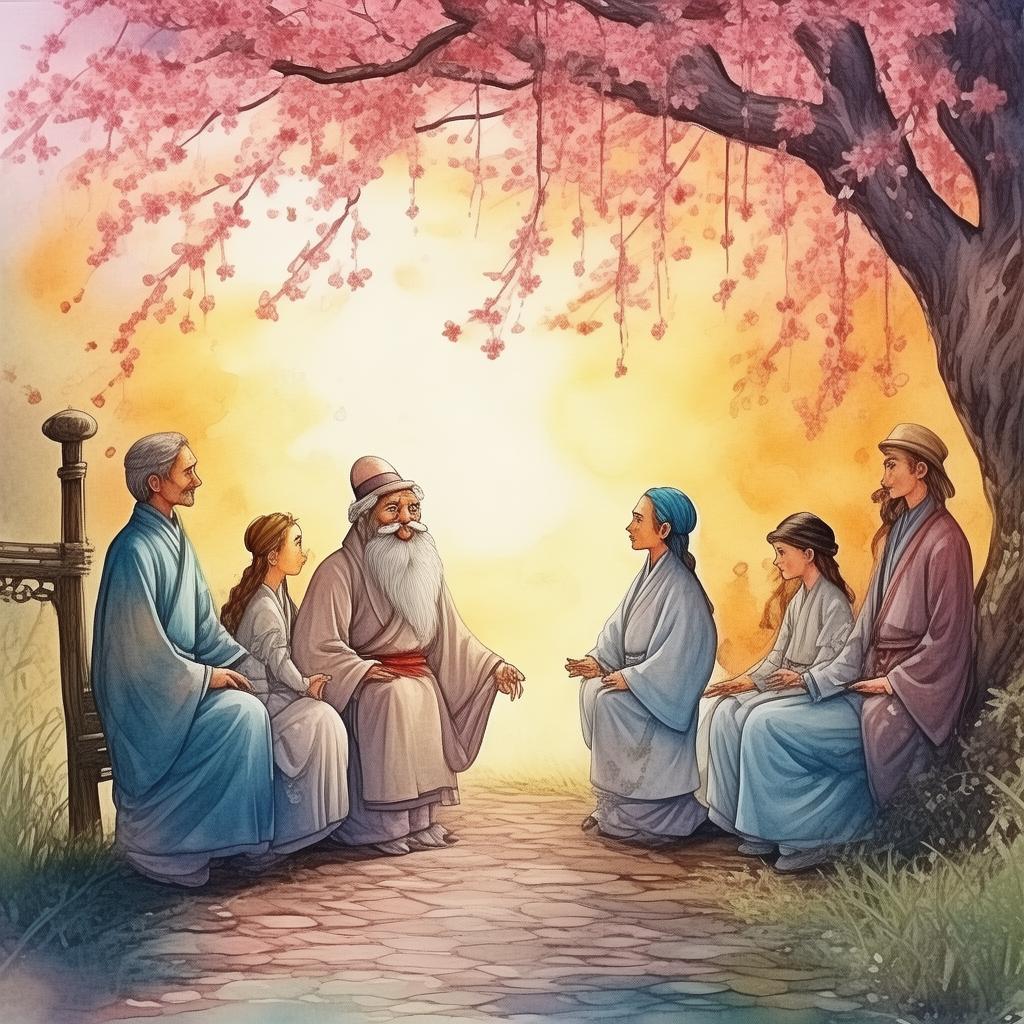
The streets are his canvas, the air his ink,
And in his heart, a fire that cannot be quelled."
Li Ming's passion for poetry was matched only by his longing for a better life. He believed that through his words, he could touch the hearts of those who read his work, and in doing so, he might find the support he needed to pursue his dreams. Yet, as the days turned into weeks, his hope began to wane.
One evening, as he sat on the steps of an old, abandoned building, Li Ming met a woman who would change his life forever. Her name was Hua Mei, a street vendor who sold fresh fruits and vegetables. She saw the pain in Li Ming's eyes and offered him a small basket of apples, her gesture of kindness a rare beacon of hope in his life.
"Keep the apples," she said, her voice filled with warmth. "They will give you strength."
Li Ming's eyes filled with tears as he accepted the basket. He knew that Hua Mei's kindness was a gift, a reminder that even in the darkest of times, there was still goodness in the world.
From that day forward, Li Ming and Hua Mei became friends. She introduced him to her community, a group of people who shared his dream of a better life. Together, they began to plan a poetry reading, a chance for Li Ming to share his work with the world.
The night of the reading was a triumph, a night where Li Ming's words resonated with the audience, touching their hearts and stirring their souls. As he finished his final poem, the crowd erupted into applause, their cheers a testament to the power of his words.
The Bread of Dreams had been a metaphor for Li Ming's life, a symbol of the sustenance he needed to survive. But on that night, he realized that the bread of dreams was more than just sustenance; it was the fuel that kept his spirit alive.
As the weeks turned into months, Li Ming's life began to change. The poetry reading had sparked a movement, a community of artists and dreamers who came together to support one another. Li Ming's words had given them hope, and in turn, they gave him the strength to continue his pursuit of a life of bread and poetry.
The Poor Poet's Passion, The Rhyme of Life and Longing for Bread, had become more than just a collection of poems; it had become a symbol of resilience and aspiration, a testament to the power of dreams and the unyielding spirit of those who chase them.
In the end, Li Ming's life was filled with both bread and poetry, a perfect blend of the tangible and the intangible. He had found his place in the world, not as a man of poverty, but as a man of dreams, a man who had learned that the bread of dreams was the true sustenance of the soul.
✨ Original Statement ✨
All articles published on this website (including but not limited to text, images, videos, and other content) are original or authorized for reposting and are protected by relevant laws. Without the explicit written permission of this website, no individual or organization may copy, modify, repost, or use the content for commercial purposes.
If you need to quote or cooperate, please contact this site for authorization. We reserve the right to pursue legal responsibility for any unauthorized use.
Hereby declared.
